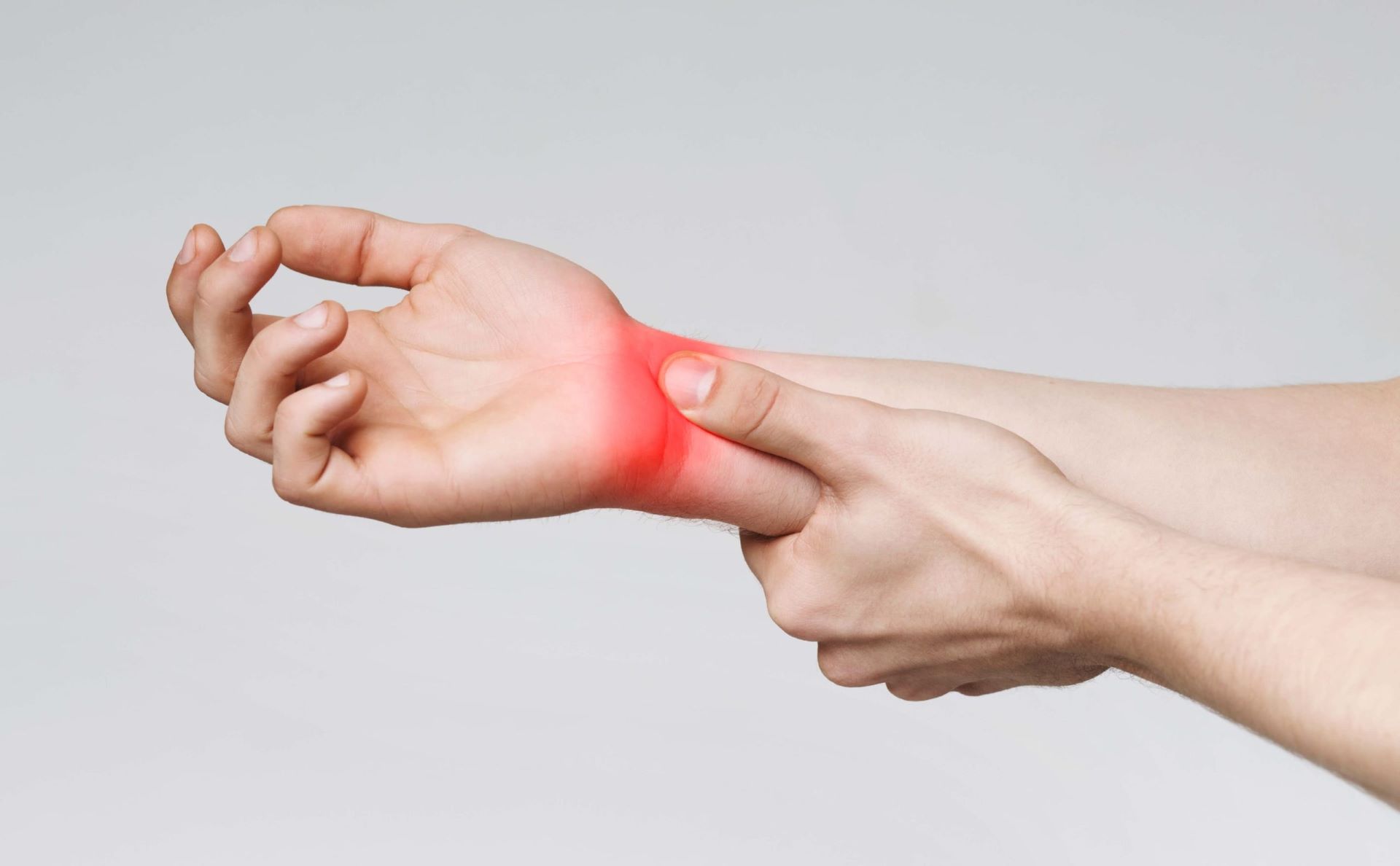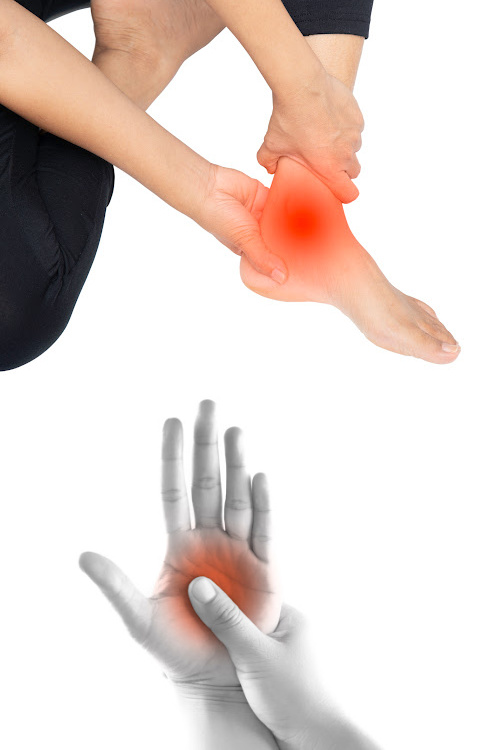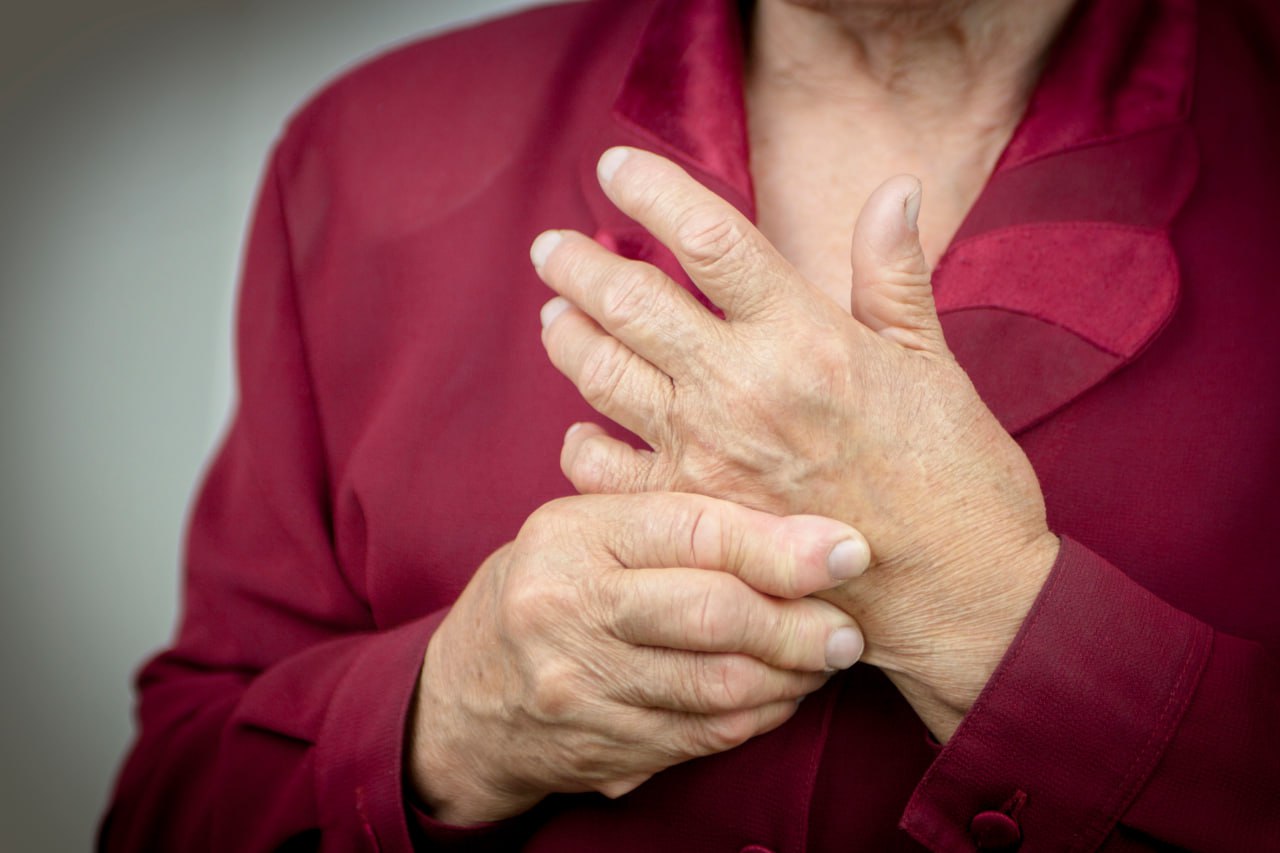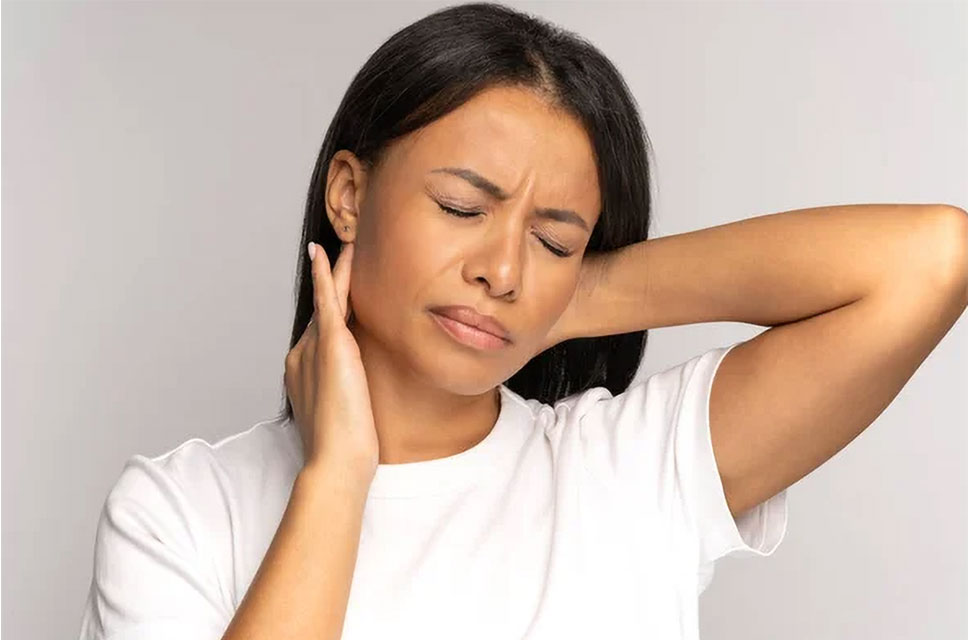Have you recently felt muscle spasms or cramps throughout your hand? They can be an incredibly frustrating and uncomfortable experience, especially as spasms typically come about quite suddenly and unexpectedly.
While infrequent occurrences are not typically a cause for concern, if your hand muscle spasms become persistent, there is a chance you have an underlying condition that may only worsen if left untreated.
Throughout this article, we’ll explore what exactly triggers hand muscle spasms and describe how they typically present and feel. We’ll also discuss some of the underlying conditions linked with muscle spasms of the hand. Additionally, we’ll pinpoint the symptoms that should prompt you to seek a medical evaluation and some of the available treatment options that can help you find some relief.
Our primary goal is to empower you with information that can assist in identifying the source of your discomfort and finding the most suitable approach for managing your pain and overall well-being. Let’s begin with learning what it feels like to experience muscle spasms in your hand.
What Do Muscle Spasms In The Hand Feel Like?
Hand muscles are delicate and intricate, yet they are used throughout our everyday tasks, and when spasms occur, they can leave a significant impact. Spasms or cramps that manifest in the hand can cause a number of different symptoms that may differ from person to person. Some commonly seen symptoms associated with hand muscle spasms include:
Sudden And Involuntary Muscle Contractions
Likely the most typical tell-tale sign of a muscle spasm is when the affected muscles suddenly contract involuntarily. When this happens in the hand, muscles can abruptly tighten, which may also cause the fingers to stiffen or for the hand to feel as though it has seized up.
Pain Or Discomfort In The Affected Area
Due to their complexity, the hand’s muscles can be painful when they cramp and spasm. Individuals often describe a sharp pinching pain or tight throbbing aches that can vary from mild discomfort to severe and distressing pain.
Temporary Loss Of Control Over Hand Movement
It is not uncommon to temporarily lose control over your hand movement during a muscle spasm. This can be alarming, as you feel the tightness of the cramp takes over but can no longer voluntarily move the affected muscles. Regular everyday tasks may start to become affected if the problem persists; even something as basic as using a pen or your phone to type might become challenging.
Twitching Or Jerking Sensations
Some individuals can experience unique twitching or jerking sensations as the spasm affects the hand’s individual muscle fibers. These sensations can be so intense that sometimes the muscles can be seen moving beneath the skin.
These are among the numerous symptoms that might occur individually or in combination with hand muscle spasms. Symptoms often vary from person to person or even between each episode. Ultimately, they are usually uncomfortable and sometimes concerning, prompting individuals to seek answers about their causes. Let’s move on to discuss some of the more probable causes of hand muscle spasms.
What Are The Most Probable Causes?
There are a variety of factors that can lead to spasms and cramps of the hand muscles, and recognizing these can give you a better sense of how to approach managing your unique symptoms. A few of the most common triggers of a spasming episode are listed below:
- Dehydration: Insufficient fluid intake can reduce important blood flow to your extremities as well as disrupt the body’s delicate balance of electrolytes. Poor circulation and electrolyte imbalances can negatively impact muscle function, increasing the likelihood of muscle spasms.
- Electrolyte imbalances: Alongside dehydration, insufficient nutrition or a diet that lacks essential elements can trigger involuntary muscle spasms. Potassium and magnesium are particularly important to maintain healthy and coordinated muscle contractions.
- Overuse of hand muscles: Another common trigger for spasms in the hand is muscle fatigue. Through repetitive tasks or overexertion of the hand muscles, such as tightly gripping something, can lead to muscle fatigue and cramping.
- Nerve compression/irritation: An injury or medical condition can lead to the nerves of the hand becoming compressed or irritated. This can result in nerve dysfunction, triggering involuntary muscle contractions.
- Poor blood circulation: Cold conditions or an underlying circulatory issue can cause inadequate blood flow to the muscles of the hand. This limits the amount of oxygen and nutrients required for muscle contractions to function normally, potentially triggering muscle cramps and spasms.
- Medication side effects: Some medications may have muscle spasms as a side effect. If you suspect your medication is causing hand muscle spasms, consult your healthcare provider.
If you’re struggling with ongoing muscle spasms in your hand, exploring these underlying factors could be the key to preventing them from reoccurring. In certain circumstances, the solution may not be straightforward. In the next section, we’ll go through some medical conditions that might cause muscle spasms in the hand.
What Associated Conditions Should You Be Concerned About?
There are a variety of medical disorders that might be the underlying cause of your hand muscle spasms. Learning a bit more about these conditions and how they’re associated with muscle spasms can help you find effective treatment. Here are some of the more common conditions to consider:
Carpal Tunnel Syndrome
Carpal tunnel syndrome (CTS) occurs when the wrist’s median nerve becomes compressed or irritated. CTS is a condition many individuals worldwide face, and muscle spasms in the hand are a common symptom.
Peripheral Neuropathy
Peripheral neuropathy is another condition that can damage the nerves of the hand, commonly affecting the feet as well. Symptoms may include burning and aching, as well as muscle spasms.
Rheumatoid Arthritis
This autoimmune disease affects the body’s joints, where inflammation and pain are its main symptoms. Individuals with rheumatoid arthritis may have muscle spasms due to swelling and inflammation irritating the hand’s nerves.
Chronic Fatigue Syndrome
Individuals with chronic fatigue syndrome can experience muscle spasms in the hand as a side effect of sleep disturbances.
Hypothyroidism
With hypothyroidism, fewer hormones are produced due to the underactive thyroid gland, which can result in problems throughout the muscles and joints and lead to weakness and spasms.
Parkinson’s Disease
Parkinson’s disease is a neurodegenerative condition that interrupts the nerves’ ability to function normally, resulting in muscle spasms, including in the hand.
Focal Hand Dystonia (Musician’s Dystonia)
Musician’s dystonia is a condition that, as its name suggests, commonly affects musicians who constantly use the muscles of the hand. Muscle fatigue and repetitive motions can lead to spontaneous muscle contractions and spasms.
Understanding the connection between hand muscle spasms and these conditions can help you realize when you might need a medical evaluation and prompt treatment. Keep reading to learn about some concerning instances where medical attention is warranted.
When To Seek Medical Attention
The ability to quickly recognize when to seek a medical assessment can lead to a timely diagnosis of any potential underlying issues and appropriate treatment, leading you to have better health outcomes.
If you experience any of the following, it is advisable to consult a healthcare professional:
- Severe or prolonged spasms that don’t improve with self-care measures
- Spasms that are accompanied by severe pain, numbness, or weakness
- Frequent or recurring spasms that interfere with your daily activities
Since every person’s experience with muscle spasms of the hand is different, it’s important to talk about your concerns with a doctor, get a precise diagnosis, and develop a customized treatment strategy.
How Are Muscle Spasms In The Hand Evaluated And Diagnosed?
If you seek a medical evaluation for severe hand muscle spasms, there are a number of diagnostic methods your healthcare provider may use to help determine the underlying cause.
- Blood tests: A simple blood test can check for any electrolyte disturbances contributing to muscle cramps and spasms.
- Imaging tests: Specific imaging tests such as X-rays or MRI scans provide detailed images that may help identify injuries or structural issues in the hand.
- Electromyography (EMG): This unique test measures the electrical activity of the hand muscles, helping to diagnose any nerve dysfunction.
These tests are part of a comprehensive assessment that can help you get to the bottom of your ongoing muscle spasms. We will discuss some of the commonly prescribed treatments in the following section.
What Treatment Options Are Available?
When it comes to treating muscle spasms affecting the hand, there are several conventional treatment options available that your doctor may recommend. These can include:
Home Remedies
- Stretching exercises: Tension may be reduced by gently stretching, and muscle spasms may be avoided.
- Massage therapy: Massage may help relax tight muscles and improve circulation.
- Heat and cold therapy: A warm compress can also promote muscle relaxation. Additionally, a cold pack can be a good pain reliever.
- Balanced diet and drinking plenty of fluids: Proper nutrition and hydration are essential for optimizing your body for normal muscle and nerve function.
- Taking electrolyte supplements: If electrolyte imbalances are contributing to spasms, supplements may be recommended by your doctor.
- Ergonomic changes: By adjusting your workspace or daily activities, you can help reduce the strain placed on your hand muscles.
Medications
- Over the counter pain relievers: Non-prescription pain relievers such as paracetamol or ibuprofen may help alleviate discomfort and reduce swelling.
- Muscle relaxants: Prescription muscle relaxants may help prevent muscle spasms as they ease tight and strained muscles.
- Anticonvulsants: In cases of severe muscle spasms and nerve pain, an anticonvulsant medication may be prescribed to interfere with the overactive nerve stimulation.
- Corticosteroids: These anti-inflammatory drugs may be used for conditions causing hand muscle spasms as they reduce the body’s inflammatory response. They come in the form of tablets or localized injections.
Surgery
Utilizing surgical options to treat muscle spasms of the hand is rare and should be considered a last resort after all other conventional methods have failed to provide relief or if muscle spasms are causing significant pain and disability.
The Neuragenex NFPM Protocol For Pain Caused By Hand Muscle Spasms
We use Neuragenex’s Neurofunctional Pain Management (NFPM) protocol. These are tailored protocols that address the distressing and painful symptoms of muscle spasms.
The specialized protocols focus on stimulating the nervous system, helping to mitigate inappropriate pain signals, fostering long-lasting relief, as well as enhancing overall well-being.
Without the use of medicines, chiropractic adjustments, and invasive procedures, we combine the following techniques in our comprehensive approach to treating the pain associated with hand muscle spasms.
Electroanalgesia
Electroanalgesia is a pain management technique that uses high-pulse electrical current to ease pain, boost blood circulation, improve mobility, and induce...
IV Therapy
IV nutritional therapy, or intravenous therapy, involves administering vital nutrients directly to the bloodstream through an IV. This type of treatment bypasses the digestive system, allowing for maximum absorption and utilization of nutrients by the...
Lifestyle Counseling
Lifestyle counseling is an approach to managing chronic pain that involves identifying, assessing, and modifying lifestyle factors contributing to an individual's pain. For example, lifestyle factors such as nutrition, physical activity, stress, sleep quality...
Read More About Muscle Spasms In The Hand Lifestyle Counseling
Conditions We Address For Pain Relief
Our comprehensive approach is a successful strategy designed to manage pain associated with a wide range of conditions, including painful muscle spasms in the hand, along with addressing any additional discomforts that may be involved. Our goal is to offer patients the potential for improved quality of life and sustained relief from persistent pain.
We can help with the pain associated with many conditions, including:

Carpal Tunnel Syndrome Pain Treatment
Carpal tunnel syndrome is a condition that can cause debilitating pain and weakness in the hands, wrists, and arms. If you're suffering from this condition, our non-invasive, non-chiropractic treatment can provide quick relief from pain, improved grip...

Peripheral Neuropathy Pain Treatment
We offer a unique and leading-edge approach to treating the burning, tingling, throbbing pain that may be associated with peripheral neuropathy or nerve damage. We have helped 100’s of patients, just like you, reduce their pain fast and get back to living...

Rheumatoid Arthritis Pain Treatment
Rheumatoid arthritis can be a debilitating and painful condition that causes swelling, joint damage, and immobility. We offer a non-invasive, non-chiropractic solution to alleviate the pain associated with rheumatoid arthritis. Our treatments are designed to...

Chronic Fatigue Pain Treatment
Chronic fatigue is a condition that causes incredible tiredness, headaches, as well as muscle and joint pain. As a result, chronic fatigue can greatly affect a person's quality of life. Thankfully, Neuragenex NFPM is a holistic, non-invasive, and...
Start Healing With Effective Pain Management
When muscle spasms affect the intricate structures of your hand, it can be painful and limiting. However, gaining a better understanding of their causes and what treatment options are available can help you regain control over your well-being.
If you are experiencing ongoing and severe muscle spasms with concerning symptoms, don’t wait to seek out medical advice. Promptly addressing your hand muscle spasms can help improve your chances of optimal health outcomes. By exploring effective pain management solutions, you can find a comprehensive solution that does not rely on heavy medications or invasive surgeries.
With the use of Neuragenex’s Neurofunctional Pain Management provides a promising approach to managing pain and inflammation caused by conditions that can lead to muscle spasms.
Don’t let your muscle spasms limit your ability to enjoy the activities you cherish; we are here to help you take the first steps toward finding long-lasting relief.
Find a treatment that suits your needs.




